Our Annual Report and Accounts for the year 2021/2022 provides an overview of the Academy’s activities over the year. It highlights the impact we’ve made in various ways – from supporting and mentoring for entrepreneurs and investment in groundbreaking research, to engaging events, inspiring education activities and practical policy recommendations.
Building a sustainable society and inclusive economy
Funding engineering in the UK
In the UK, we award grants for:
- research
- innovation
- supporting startups
- spinouts and SMEs,
- enhancing STEM education, and engaging the public.
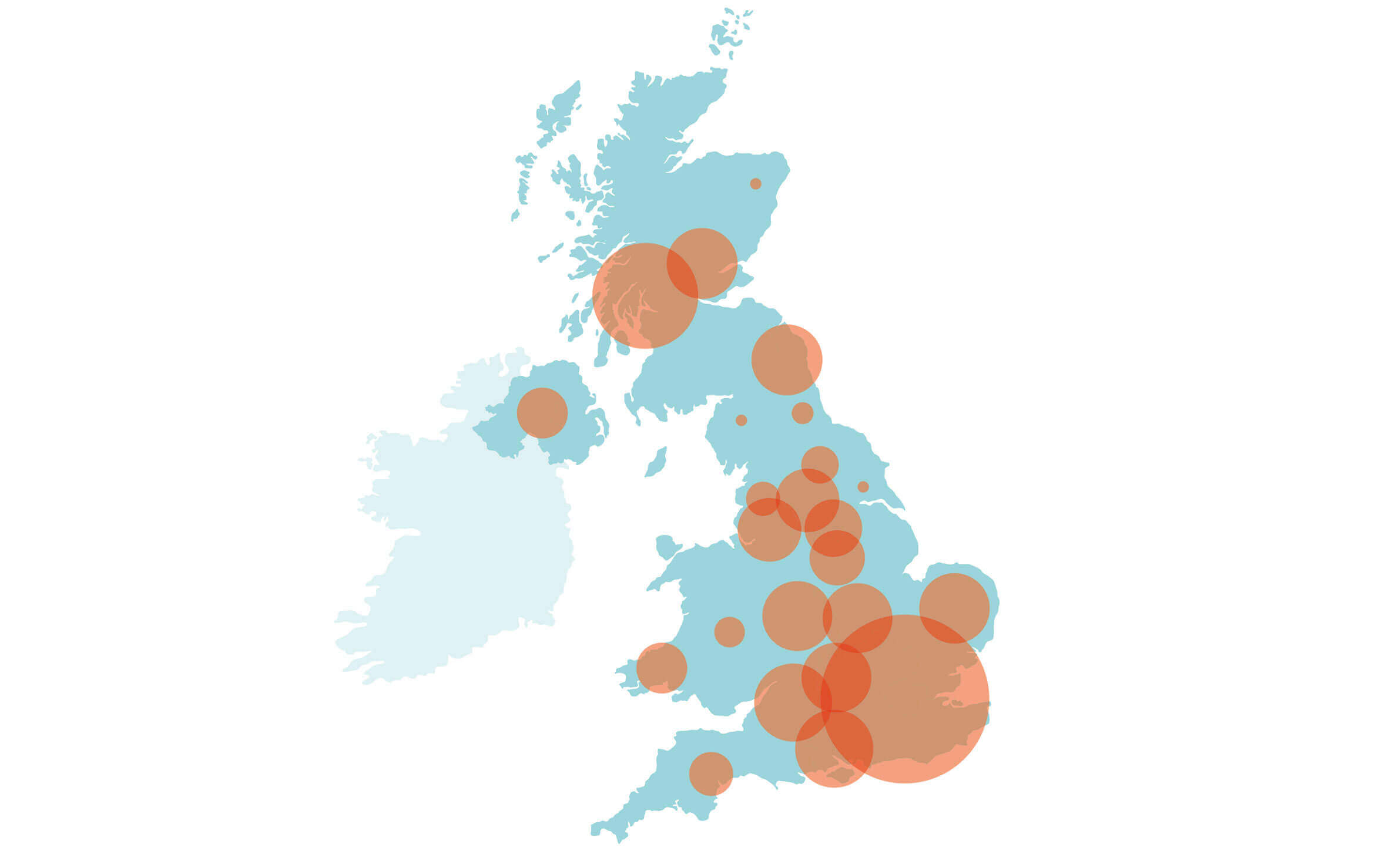
Royal Academy of Engineering8 Funding exceptional engineering in the UK In the UK, we award grants for research, innovation, supporting startups, spinouts and SMEs, enhancing STEM education, and engaging the public.
Funding engineering across the world
Internationally, we fund engineering innovators supported by the Global Challenges Research Fund and the Newton Fund. Our programmes include:
- Africa Catalyst
- Africa Prize for Engineering Innovation
- Frontiers
- Higher Education Partnerships in sub-Saharan Africa
- Leaders in Innovation Fellowships
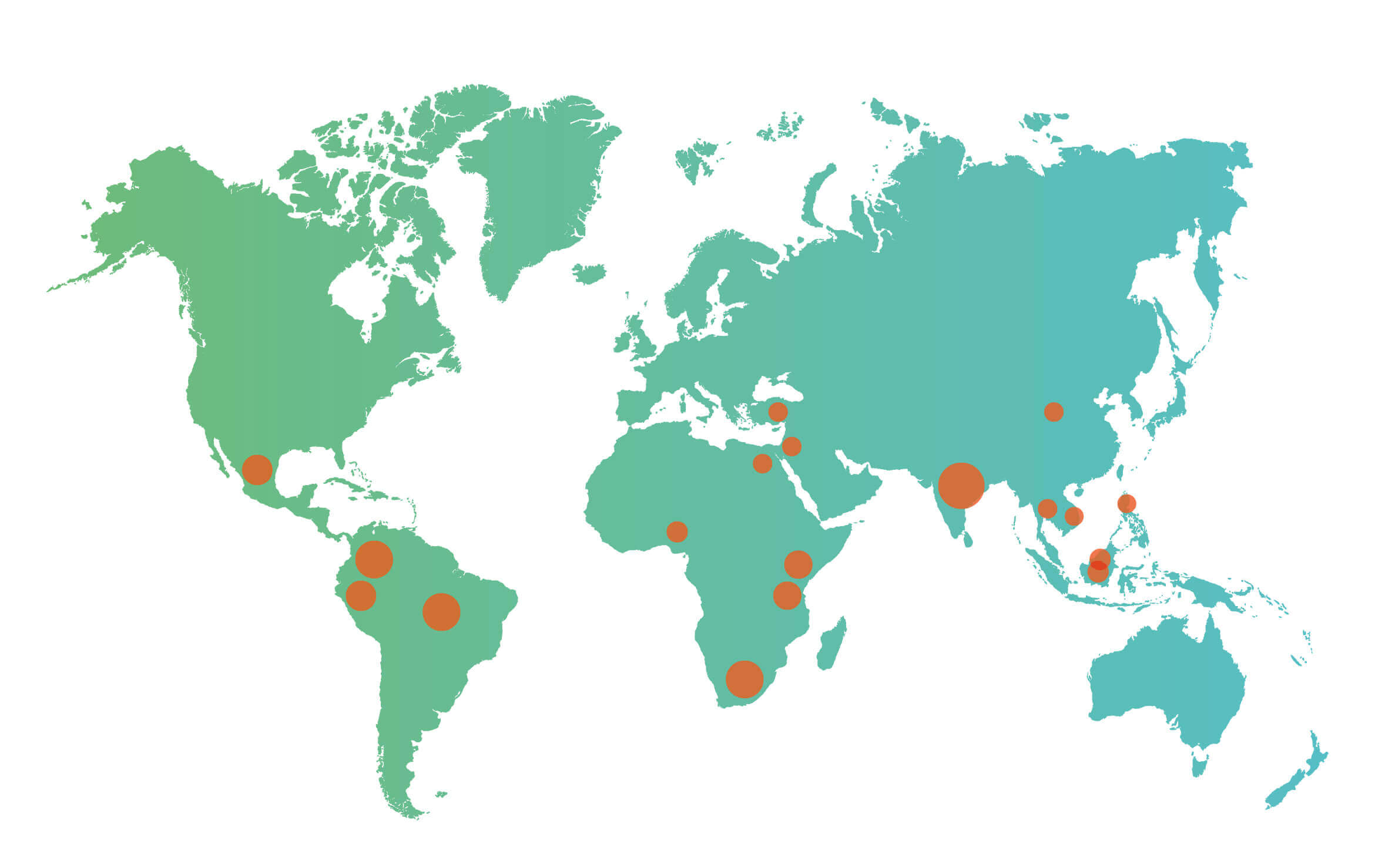
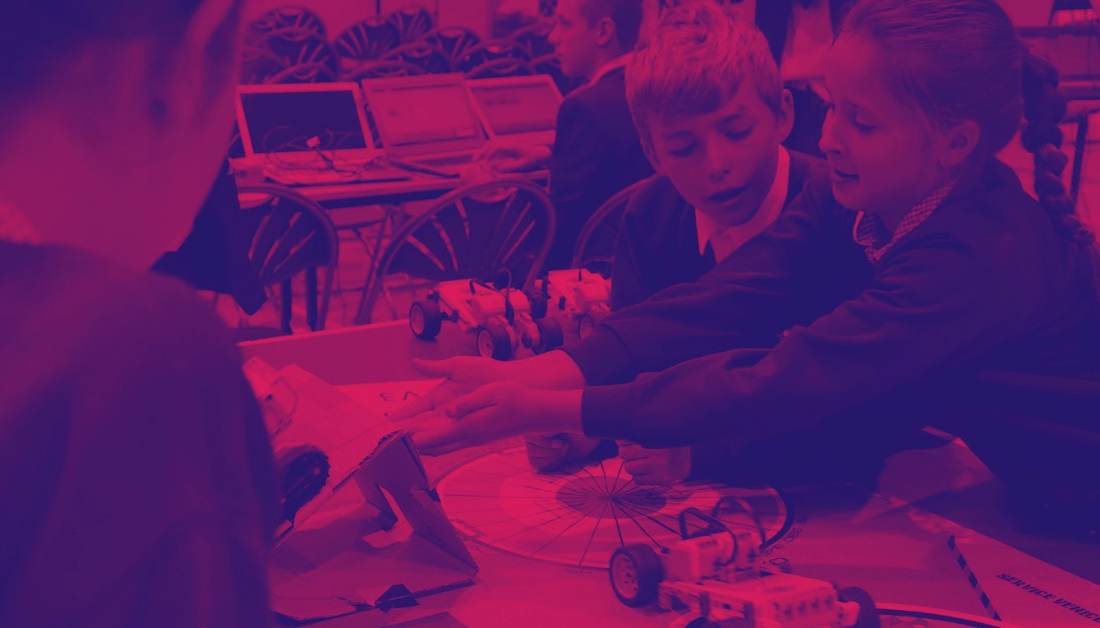
Talent and Diversity
Our work with teachers and employers is making the profession more resilient, diverse and prepared for the future, to ensure that the UK has a world-leading and truly inclusive engineering workforce that sets the highest standard for technical excellence, ethics and professionalism.
In September 2021, the Connecting STEM Teachers programme celebrated its 10th anniversary with a national Sustainable Futures Innovation Challenge that asked pupils aged 9 to 14 for creative solutions to tackle the biggest problems impacting our environment.
Over 1,500 students from 37 UK schools attended an interactive workshop, hosted by TIME magazine’s 2020 ‘Kid of the Year’ Gitanjali Rao, with teachers saying that many of the young people were inspired to take part in the challenge and considered themselves as STEM innovators.
More than 8,500 of our STEM resource boxes have been sent to schools to date, with a further 32,500 individual packs sent to students learning at home during lockdowns.
Our Welsh Valleys Education Project has so far provided more than 20,000 STEM learning opportunities and awarded 69 Panasonic Trust Future Engineer bursaries to post-16 students, with 33% of bursaries awarded to women students in academic year 2020/21.
Over the last six years, more than 1,000 students from over 66 universities have taken part in our Graduate Engineering Engagement Programme (GEEP), which has resulted in at least 250 employment opportunities including internships, graduate placements and jobs.
GEEP alumnus Darrell Njogo is currently undertaking an industrial placement as an aerospace engineer at BAE Systems. He describes his experience on the programme as “invaluable”.
Darrell is fulfilling a lifelong passion for aviation and hopes to undertake an MBA in air transport management to combine the business side of the industry with the technical background gained through his degree.
“The personal development I experienced through the programme and networking opportunities are the biggest benefits I’ve gained. I noticed how important networking is and how meeting key people in industry could support your career development and open doors you didn’t even know existed. The Academy helped me to get where I am.” Darrell Njogo
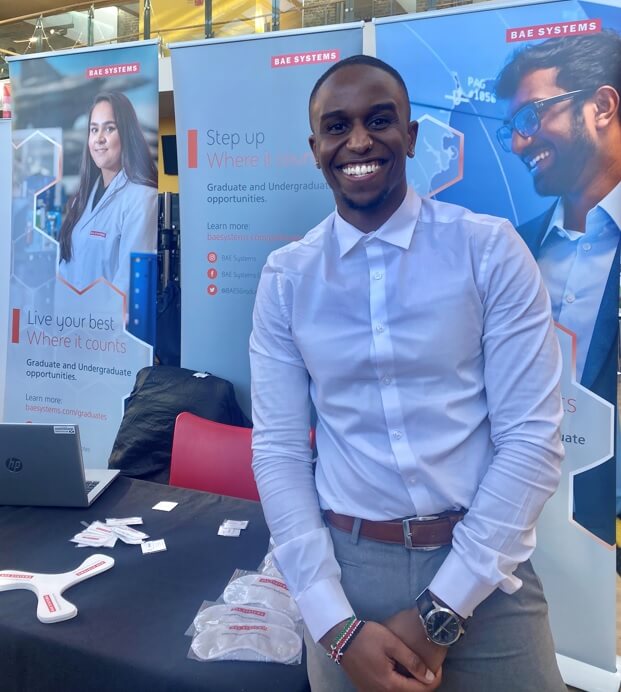
Darrell Njogo, Graduate Engineering Engagement programme Alumnus
Innovation
We invest in some of the UK’s most creative and exciting engineering ideas and businesses, by offering support, training, mentoring, and funding to talented innovators, researchers and leaders from across the profession.
In almost 10 years, we have supported over 300 researchers, recent graduates and SME leaders to start up and scale up businesses and awarded over £8 million in grant funding, which has led to £800 million in follow-on funding and over 5,000 new jobs.

In January 2022, our Enterprise Fellowships programme was named a top three UK accelerator by Sifted, the European startup media site, established by the Financial Times.
Hub members achieved success: in April, Wootzano, which has developed a state-of-the-art fruit-picking robot, signed a £300 million deal with one of the largest fresh produce packing houses in the UK. In May, clean-tech spinout Kenoteq received £1 million from Zero Waste Scotland to commercialise production of its brick made of recycled construction waste, the K-Briq
With WMG at the University of Warwick, we announced the University of Surrey’s 5G Innovation Centre (5GIC) as the first ever winner of the £25,000 Bhattacharyya Award, for an exemplary academia–industry partnership that has helped to build the UK’s work in 5G technology.
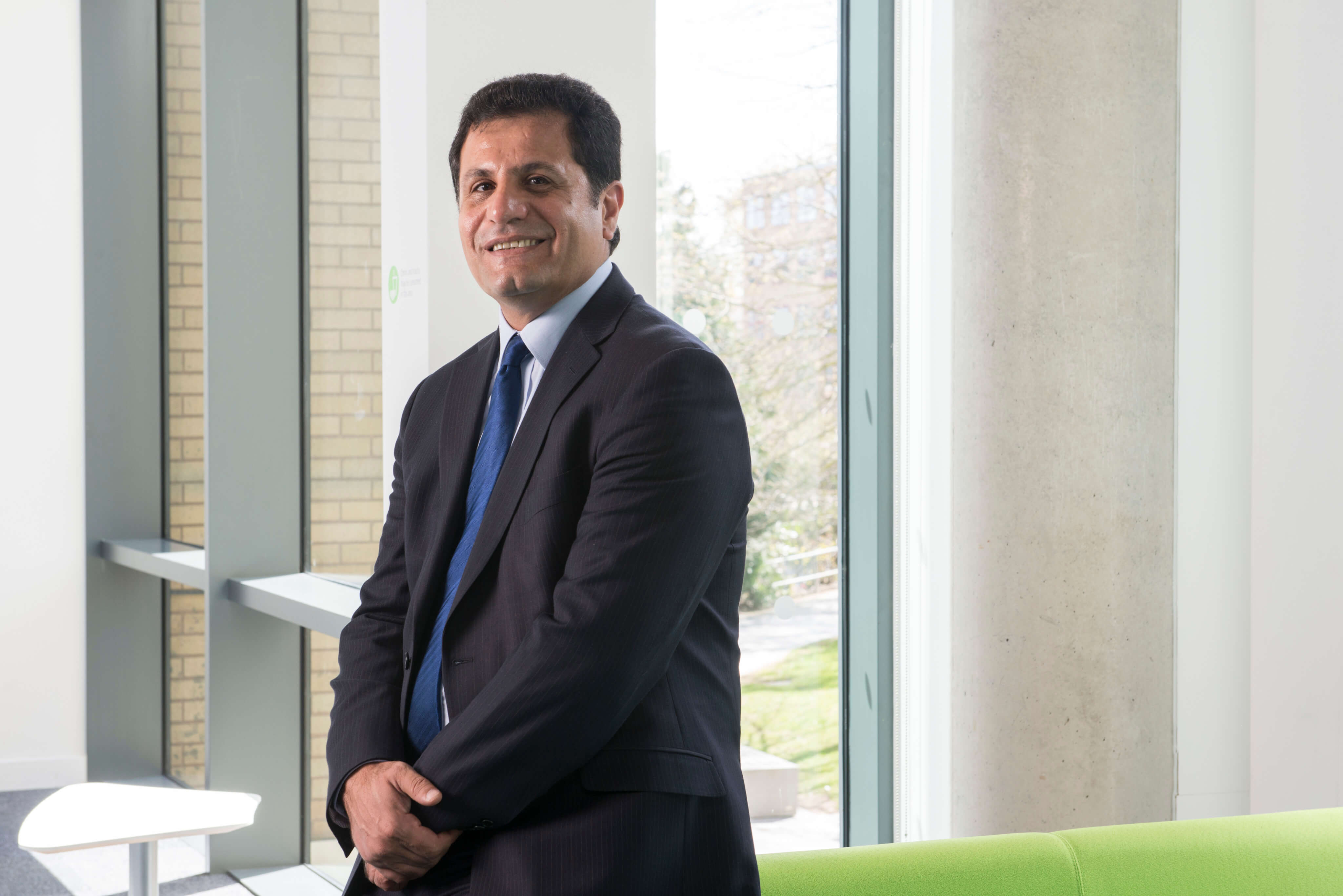
Professor Rahim Tafazolli FREng, founder and Director of the 5G Innovation Centre (5GIC) at the University of Surrey
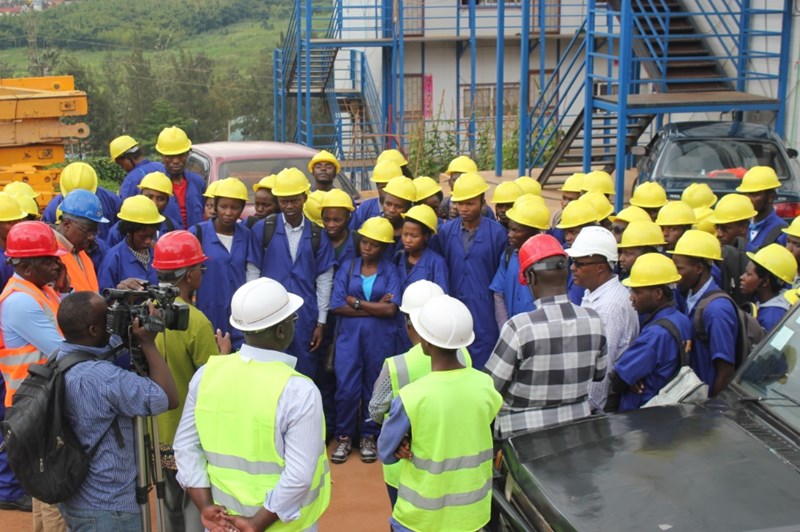
“As project manager and initiator, I am proud to see the impact that this Africa Catalyst project brought to the Institution of Engineers Rwanda and to the society in general. This programme supported and developed career skills for 210 young graduate engineers needed ind the industry, 77% of whom were hired after the internship period.” Cecile Uwimana from Rwanda
To date, we have funded innovators, higher education institutions and professional engineering bodies in 24 countries across Africa, helping them to improve knowledge and skills, share best practice, promote professionalism, increase local engineering capacity, and develop scalable engineering solutions to local challenges.
Across the world, we have awarded more than £1.45 million in grant funding and delivered more than 1,100 hours of expert training and mentoring support, with entrepreneurs then raising more than £11 million in follow-on funding.
Our alumni have started more than 91 new companies, creating more than 430 new jobs, while 86 engineering entrepreneurs from 19 countries have been able to commercialise their innovations.
Policy and engagement
Much of our work aims to improve awareness and recognition of the crucial role engineers play and of engineering’s impact on lives, both in the UK and internationally.
In July, we published the Infection Resilient Environment report, which was disseminated widely, and discussed with policymakers, industry and at committee inquiries such as the Scottish Parliament COVID-19 Recovery Committee, attracting a significant amount of interest and engagement across government.
One key recommendation – that good ventilation inside public buildings and on transport systems is essential to reducing risk of COVID-19 – helped shape the government’s public messaging.
The Cabinet Office is implementing the recommendations, improving the ventilation guidance and public information campaigns, and established a ventilation Technical Advisory Group.
In the run up to – and during –COP26, our Engineering Zero campaign highlighted and promoted the crucial contribution engineers can make to move us closer to achieving a thriving, low-carbon economy and reaching net zero.
Our Getting to net zero video explainer series was launched as part of the campaign, featuring experts, innovators and entrepreneurs explaining why reaching net zero in time requires a new approach to transforming infrastructure, and how to tackle such a complex and broad challenge.
Other activity as part of the campaign included a series of Ask the Engineers online panel discussions to engage the STEM- and environment-interested public in debates about some of the issues raised by COP26 from an engineering perspective.
We supported events that took place at COP26. A panel of expert speakers discussed Engineering X’s work on open burning of waste at an official UN side event – the first time the topic has been raised at a high-level forum.
Climate Change Catastrophe!, a filmed show about climate change that focuses on what children think of climate change, and their hopes, fears and ideas for the future funded through our Ingenious public engagement programme, was also presented at COP26.

Digital artwork in the Museum of Engineering Innovation
In July, we awarded the MacRobert Award – the UK’s longest running and most prestigious prize for innovation in UK engineering – to DnaNudge, whose pioneering consumer genetics technology was pivoted and adapted to deliver a rapid, lab-free RT-PCR COVID-19 test to NHS hospitals.
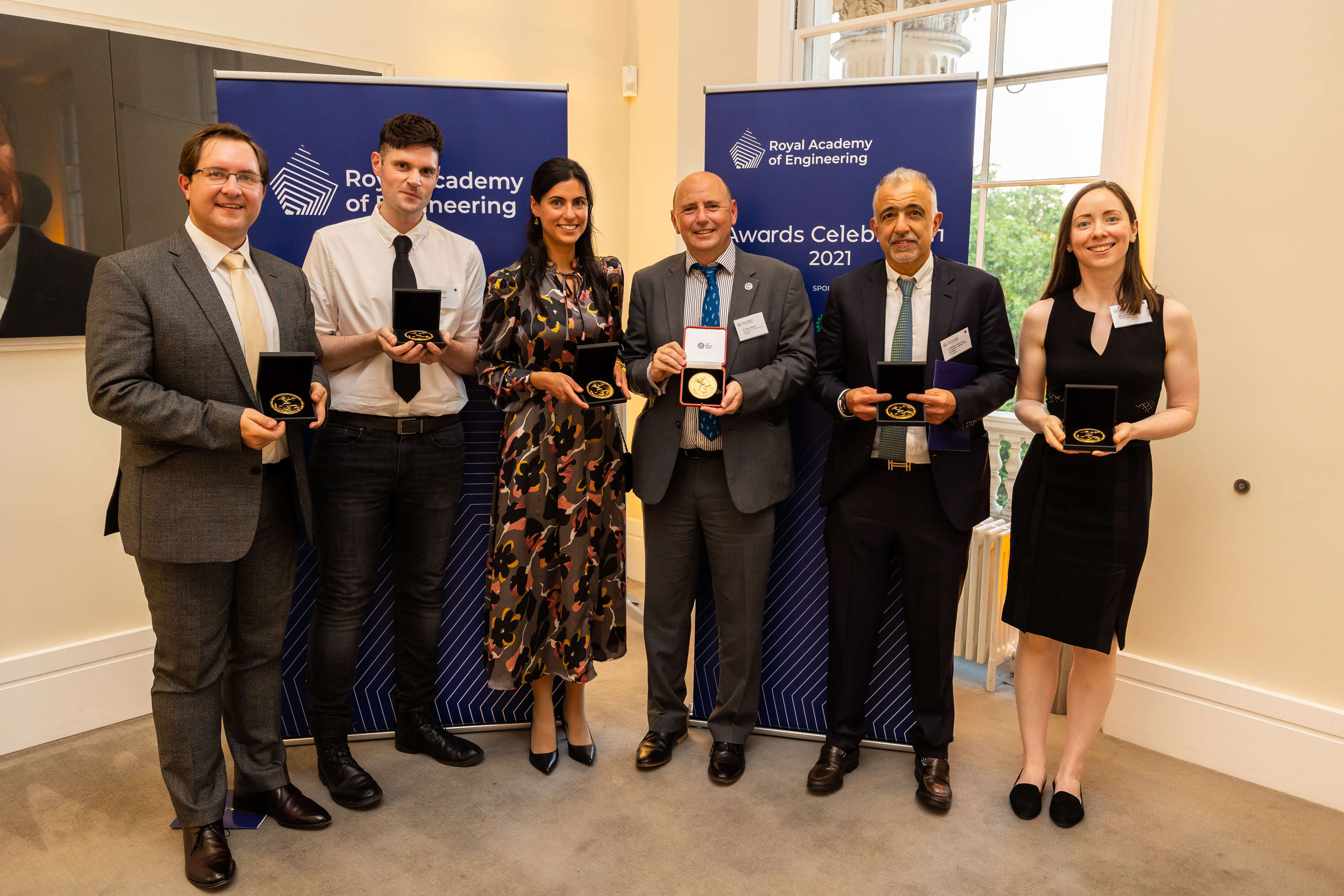
The DnaNudge team members with their gold medals Based in central London at the Imperial College London Translation and Innovation Hub in White City, DnaNudge was created by biomedical engineer and CEO Professor Chris Toumazou FREng FRS and geneticist and CSO Dr Maria Karvela. The winning team also includes Dr Caroline Golden, Clinical Research Manager; Josef Cicinski, UK Retail Store Manager; and David West, COO.
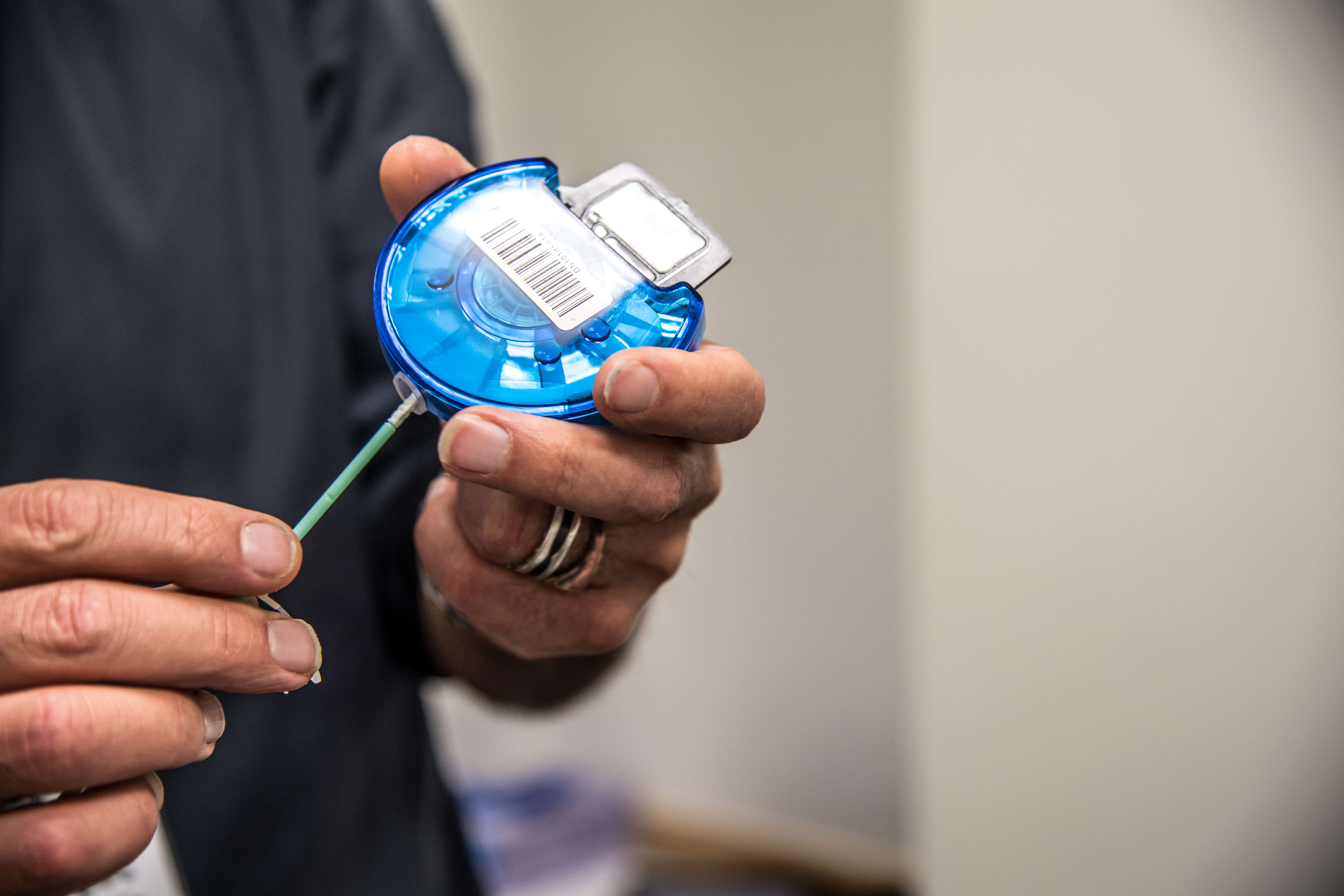
Covidnudge test kit
In February 2022, the QEPrize was awarded to Japan’s Dr Masato Sagawa for his pioneering work on the world’s most powerful permanent magnet, which has been an integral component of clean technologies such as electric vehicles and wind turbines.
News of the announcement was broadcast across 650 outlets in 25 countries spanning five continents, including Canada, the USA, Germany, Italy, South Korea, India, and Japan.
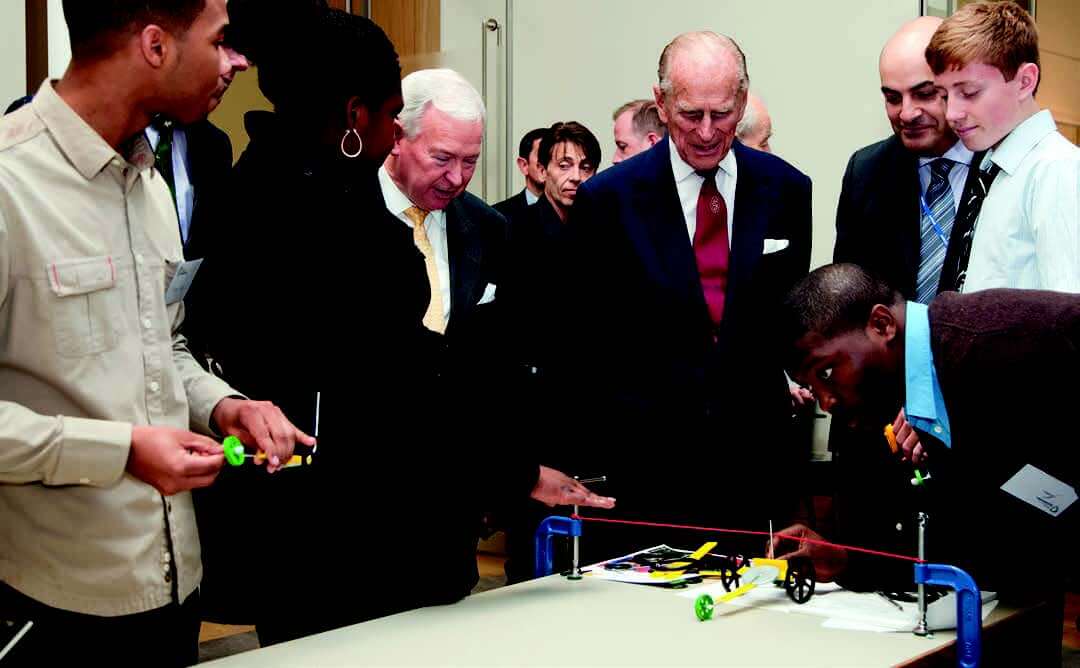
In October 2012, our late Senior Fellow, HRH The Prince Philip, met with students from Lambeth College, who were undertaking engineering projects, at the reopening and naming of Prince Philip House.
People and operations
Our credibility as a charity, National Academy and Fellowship with a mission to deliver public benefit from engineering excellence and technology innovation is underpinned by our ability to deliver.
Since March 2021, we have recruited 58 new members of staff, bringing our total number to 154. This has included the creation of 28 new posts to expand under-resourced and strategic priority areas.
Our Environmental Sustainability Action Group continues to ensure that the Academy improves its environmental performance. This year we commissioned a carbon baseline for the financial year 2019 to 2020, during which we had a carbon footprint of 1,323 tonnes of carbon: 10.7 tonnes per employee – equivalent to 1,170 flights from London to New York.
The group has led on several changes at Prince Philip House including improving the sustainability of consumables such as coffee, enabling oil from the kitchens to be turned into biofuel, and updating key policies to embed principles of reduce, reuse, recycle.
We renamed two of our most prestigious awards as part of our commitment to reflect the modern engineering landscape and celebrate the diverse range of engineers who are helping to tackle some of the world’s most pressing challenges.
Our Royal Fellow, HRH The Princess Royal, has generously allowed us to rename the Silver Medal, which celebrates outstanding personal contribution to UK engineering by an early- to mid-career engineer resulting in market exploitation, as The Princess Royal Silver Medal.
The Major Project Award has been repurposed to align directly with the Academy’s strategic goal on sustainability and will now be known as the Major Project Award for Sustainability.








